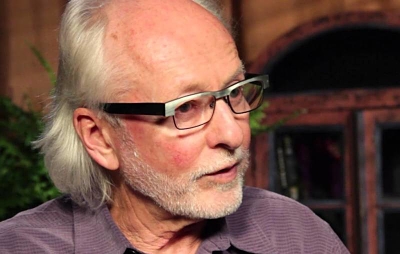
People’s greatest fear was a fear of nullification…that they would go to their graves and no one would notice…They wanted to matter and to have made a difference.
Richard Leider
Richard Leider: Living a Life that Matters
I recently rediscovered New Dimensions radio. I first heard of New Dimensions in the mid 1990s through a book called An Open Life: Joseph Campbell in conversation with Michael Toms. The book, published in 1988, is an edited compilation of interviews between Michael Toms and Joseph Campbell and provides many insights into Campbell and the Hero’s Journey that you won’t find anywhere else.
When I rediscovered New Dimensions several weeks ago, I delighted to find that they have downloadable mp3 files of many of the interviews they have done over the years for just $1.99 each. Each interview lasts about an hour, and the interviewees include Carol Pearson (Awakening the Heroes Within), David Bohm, Robert Thurman, Thich Nhat Hanh, Jean Houston (Search for the Beloved) and dozens of other notables—many of whom did several interviews.
One of the people Toms interviewed was Richard Leider, founder of the Inventure Group, executive coach and expert on the importance of purpose in our lives. In a series of three interviews between 1995 and 2001, Leider discusses the role of purpose in living a life that matters.
Our Search for Meaning
Leider’s interest in purpose and meaning began when he read Victor Frankl’s classic Man’s Search for Meaning in college. Frankl, an existential psychologist, survived Germany’s World War II death camps. During his incarceration, he focused on helping other internees survive by finding meaning in their struggle. Through this work, Frankl developed the foundation of his meaning-centered therapy, which he called ‘logotherapy” (logos is Greek for for “meaning”).
In Man’s Search for Meaning, Frankl wrote that striving “to find a meaning in one’s life is the primary motivational force in man” (p. 121). He also believed,
The true meaning of life is to be discovered in the world rather than within man or his own psyche, as though it were a closed system…being human always points, and is directed, to something, or someone, other than oneself—be it a meaning to fulfill or another human being to encounter. The more one forgets himself–by giving himself to a cause to serve or another person to love–the more human he is and the more he actualizes himself….In other words, self-actualization is possible only as a side-effect of self-transcendence (p. 133).
In the late 1970s Leider began interviewing older people, asking the question, “If you would live your life over again, what would you do differently?” He found that the three most mentioned life do-overs were:
1. Reflect more: People said they would spend more time stepping back from life to reflect on the big picture.
2. Take more risks: Not risk in the normal sense, but the risk of being more authentic.
3. Live a life that matters: Find and fulfill one’s purpose
Do-over three, which could actually encompass the other two, was also the greatest fear that these older people had: They feared not so much death, but that they would die not having lived a life that mattered.
Gaining a Perspective
According to Leider, “In times of change, we go higher and deeper. We step back and ask, ‘What’s going on here? What’s really important?’” Purpose, Leider says, is a constant during these time of transition. One quick way to uncover our purpose, he says, is to “catch ourselves in the act of being ourselves.” To do this, he suggests that we sit down and make list of 10-15 things we love to do, things that our “hand turns to naturally,” activities during which we are so engaged that we lose all track of time.
Here is a short video in which Leider explains this process. If you’re interested, Leider has done several Ted Talks in which he explores the importance of purpose in our lives and how we go about finding and unfolding our purpose.